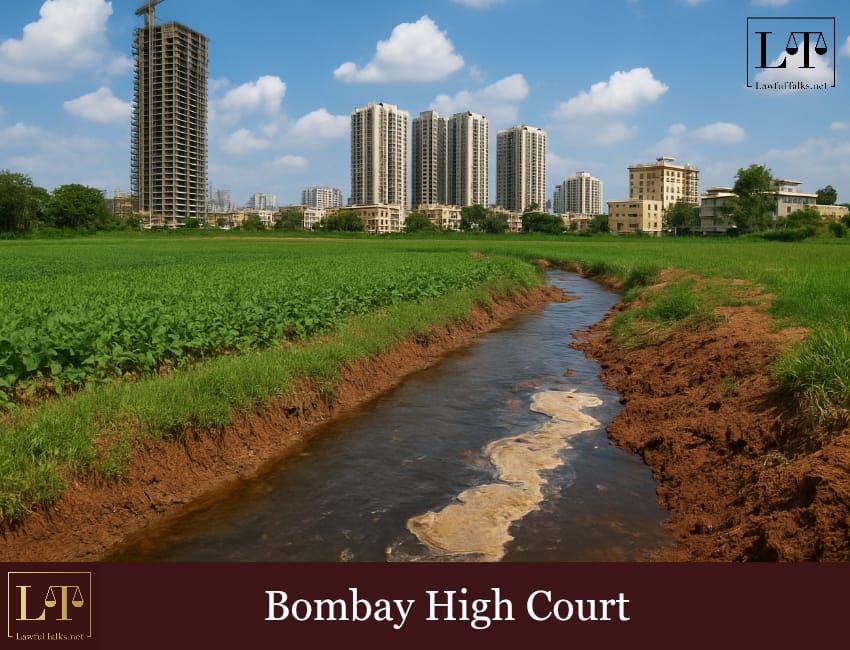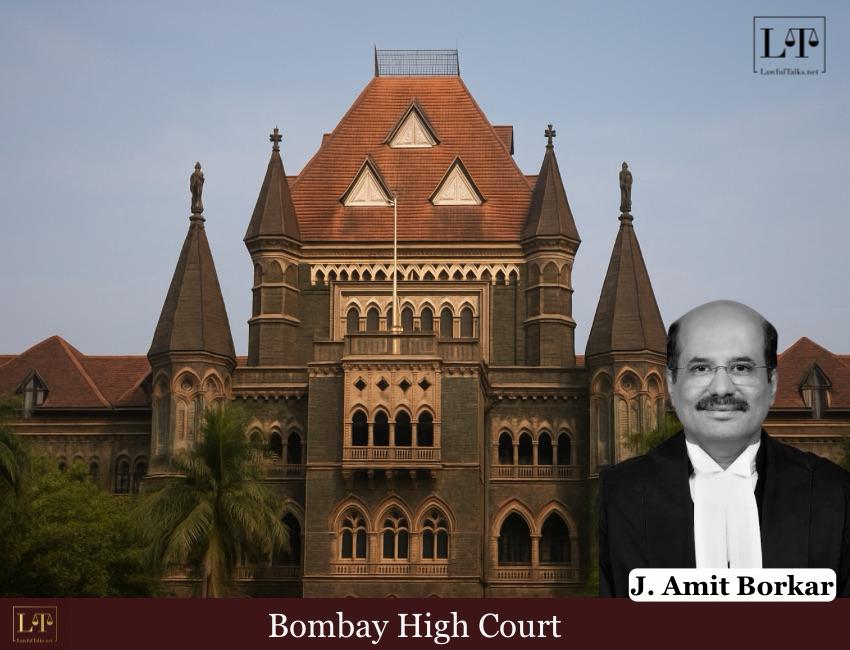Allahabad HC Sets Aside Afzal Ansari's Conviction, Allows Him to Continue as MP

The Bombay High Court’s Division Bench of Justice G. S. Kulkarni and Justice Arif S. Doctor, came down heavily on the Kulgaon-Badlapur Municipal Council (KBMC) and a private developer for gross lapses in urban planning and civic administration that led to untreated sewage being discharged into agricultural land in Thane district. In a strongly worded judgment, the Court highlighted how such failures not only damage property and the environment but also strike at the very core of citizens’ fundamental rights.

Case Facts:
The case arose after Yashwant Anna Bhoir (petitioner), a 60-year-old agriculturist, approached the Court alleging that sewage from the septic tank of a high-rise project, Skyline Building, developed by A Plus Lifespace, was overflowing into his farmland. Despite repeated complaints to the KBMC, no action was taken.
Experts report appointed by the Court confirmed that the septic tank was substandard, lacked sufficient capacity for the 400-plus residents of the building, and was discharging untreated waste both onto the petitioner’s land and ultimately into the Ulhas River.
The petitioner argued that this situation violated his rights under Articles 14 and 21 of the Constitution, as well as his right to property under Article 300-A. He contended that the discharge had rendered his land unusable, causing him financial loss, and sought ₹10 lakh in damages.
The petitioner further emphasized that the municipal council and the developer must be held accountable under the polluter pays principle, warning that unchecked urban growth without basic infrastructure posed a grave danger to both citizens and the environment.
The KBMC, in its defence, admitted to the deficiencies but stated that remedial steps were underway under government schemes such as the Amrut Mission, with new sewage treatment plants expected to be operational by December 2025.
It also claimed that temporary bioremediation methods had been adopted to control pollution. The developer did not dispute the overflow but attempted to shift part of the responsibility to the housing society, while offering to build a compound wall to prevent sewage seepage.
The bench rejected these explanations, describing the case as a reflection of a complete breakdown in urban planning. The Court said it was “shocking” that occupation certificates had been issued to large residential complexes despite the absence of municipal sewer lines, relying instead on small and inadequate septic tanks. The court stressed that such negligence was unacceptable, particularly in a rapidly developing suburb like Badlapur.
“Any disharmony, inappropriate planning and deficient working of any of such facilities severely affects the fundamental rights of the citizens as guaranteed under the Constitution of India and the several other legislations entitling a right to healthy environment… there is an urgent need of a concrete mechanism to be devised, so that the municipal authorities achieve and seriously implement such core requirements so as to guarantee to the citizens a clean and pollution free environment, by adhering to the highest standards.” the Bench observed.
The Court also underscored the need for strict compliance with town planning norms, noting: “None would disagree, that for development permission to be granted to a high rise building, it is of utmost necessity, that the planning authority first and foremost has a complete layout/blue print of the essentials such as proper access, water pipelines, electricity, street lights, sewage lines etc. to name a few. It is only after such core municipal infrastructure is ready and available, building proposals can be considered and granted by the KBMC, more particularly considering that Badlapur is a fast growing suburb of Thane, having a high demand for properties of all kinds. Town Planning cannot lag behind which needs to keep pace with the development and demand for buildings created by the market.”
Court’s Ruling:
Accordingly, the Court ordered the developer to pay ₹10 lakh in damages to the petitioner and permitted remedial measures such as the construction of a compound wall to prevent further sewage seepage.
The Court also mandated the formation of an “Improvement Committee for Kulgaon-Badlapur Municipal Area” comprising experts to guide systematic town planning and sewage management.
Importantly, the Court cautioned that in future, no occupation certificate should be granted unless core infrastructure like sewerage lines and treatment facilities are fully in place.
Case Details: Yashwant Anna Bhoir v. State of Maharastra & Ors., WP No. 7404 of 2024
Advocate for the Petitioner: Mr. Avinash Fatangare with Ms. Archana Shelar
Advocate for the Respondents: Ms. M. P. Thakur, AGP for the State/Respondent Nos.1 to 3.
Mr. Dinesh Adsule, for Respondent No.4.
Mr. Sumedh S. Modak i/b. Mr. Vijay Killedar, for Respondent No.5.

Anushka Bandekar
Advocate
Latest Posts
Categories
- International News 19 Posts
- Supreme Court 390 Posts
- High Courts 384 Posts




















































































































































































































































































































































































































































































































































































































































































































































































































